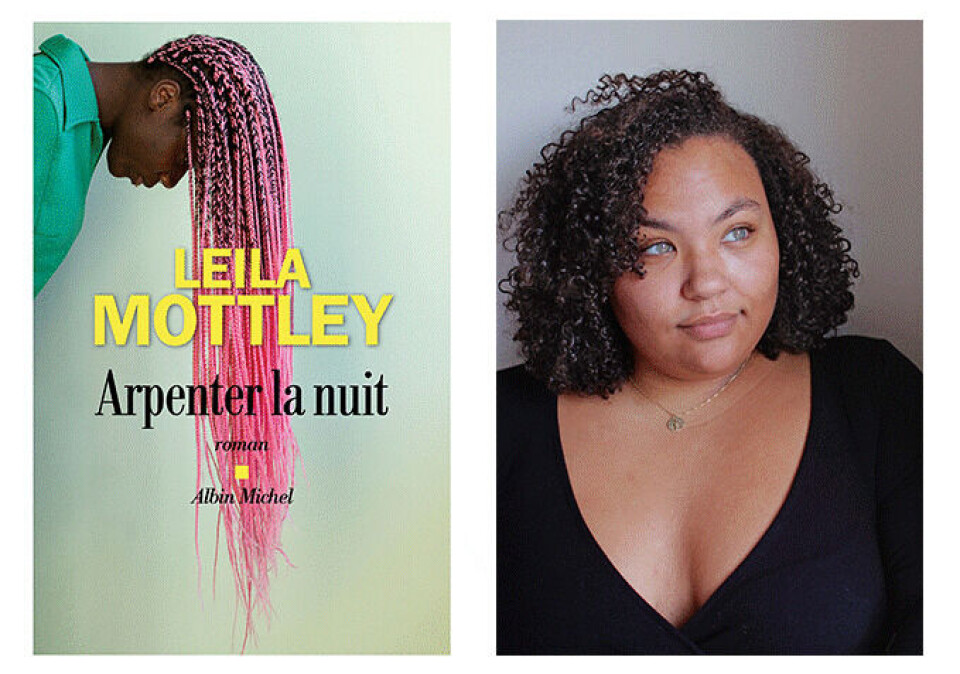-
Hungry, peckish, stuffed: 11 French phrases to do with food and eating
These phrases help to talk about one of the most important subjects in France - food
-
Can you guess the meaning of grincheux?
Read about a real-life example illustrating when to use this fun French adjective
-
When and why do we say c’est la goutte d'eau qui fait déborder le vase?
An expression to indicate that something has tipped you over the edge
French writer reveals secrets of translating a great novel
From toning down the swearing to swotting up on Google Street View, re-working a prize-winning book can be a long process

The French translator of one of the most acclaimed American novels of 2022 has spoken of how her work sheds light on subtle cultural differences.
Pauline Loquin translated Nightcrawling by Leila Mottley, which was longlisted for the Booker Prize and was a finalist for the Prix Médicis Etranger award in France.
The award recognises authors in translation “whose fame does not yet match their talent” and was ultimately won by Ukrainian novelist Andrey Kurkov for Grey Bees.
Ms Loquin says translation “reveals the workings of a society, how its people interact”.
She adds: “One of the aspects of translation that I find most fascinating is how language reflects how its speakers think.

British and French communicate differently
“British and French people do not communicate in exactly the same way through their languages.”
Read more: Five French words that we use in English…and vice versa
Nightcrawling (Arpenter la nuit in French) is a case in point, she says.
It offers a window into the mind of 17-year-old protagonist Kiara as she navigates the marginalised spaces of Oakland, California, looking for work.
With her rent rising because of gentrification, she tries to look after a little boy whose drug addict mother has disappeared, while “begging for shifts at the liquor store and counting the number of crackers left in the cupboard”.
Ms Loquin was drawn to translation after acting in a number of French and English plays.
It was while performing in these, she says, that she began to notice the different translations that existed, and how they compared to the original.
“So I started doing my very first amateur translations. “I have always been fascinated by JRR Tolkien, so I translated some of his texts for my friends who didn’t speak English.
I developed a taste for it and I decided to train to make it my profession
I developed a taste for it and I decided to train to make it my profession.” Since finishing her studies, Ms Loquin has co-translated Tolkien’s Unfinished Tales of Númenor and Middle-earth, and also revised other translations of Tolkien-related texts.
While those projects required an appreciation for the otherworldly intricacies of Middle Earth, Nightcrawling presented a different challenge in replicating the colloquial style and poetic lilt of its narration.
The novel’s author, Leila Mottley, is also a published poet, and her writing is full of lines such as “the way her cheekbones bob like apples” and “adult playgrounds masquerading as street corners”.
This lyricism sits within a conversational cadence, as if Kiara were speaking directly to the reader, and Ms Loquin says that producing something grammatically correct while retaining Leila’s poetry was not easy.
“Kiara is an intelligent girl. Even though she no longer goes to school, she thinks about things, she is interested in things, and we shouldn’t think differently just because her speech is not perfectly correct.”
After writing the first few chapters, Ms Loquin sent them off for approval to the publisher, who subsequently let her go ahead and finish the book.
She was in email contact with the author throughout the translation process, however, and was able to ask any questions – about the nuances of a phrase, for example.
She describes the whole process as “collaborative”. Ms Loquin was also guided by the author’s poetry output.
“Before beginning my translation, I read some of her poems so that I could take the language in that direction,” she says.
“Another thing I decided with my editor was the need to adapt the language to our audience.
“The word ‘f***’ appears frequently in the original, but I did not always replace it with a French equivalent because in French it would seem extremely crude.
‘It’s bad in English but it’s even worse in French’
“You have to find tricks in order to reflect that natural language of the streets, but avoid caricaturing and maintain the lyricism.”
Translation is not just about mechanically relaying the meaning of words into another language – Ms Loquin was also eager to evoke an “immersive” sense of how Kiara’s surroundings inform the atmosphere of the novel.
“You really need to dive into the universe of Oakland, where I have never been,” she says.
“Leila grew up there so the city is almost like a character in itself.
I spent many hours on Google Street View so I could follow Kiara’s movements and give much more tangible descriptions of a building or a street and soak up a sense of the characters’ lives.
“Also, in Nightcrawling there is an emphasis on music, so I listened to a lot, especially the artists who are mentioned in the novel, to give myself a rhythm and to guide me.”
Ms Loquin says she was “extremely touched” to discover Arpenter la nuit had been chosen as one of the finalists for the Prix Médicis, and thrilled for Leila Mottley too.
Read more: English-language titles feature highly in France’s top 50 books
“I was so happy for Leila because she wrote this novel with such honesty.
I think she put her whole heart into speaking about Kiara’s life, which is a reflection of some people’s reality.
“For a first novel, I think it is really beautiful and both it and Leila deserve to be known by the whole literary world.
She wrote this when she was 17, with such maturity.”
As for whether Ms Loquin has her own aspirations to write a novel – watch this space.
“I have often felt the ambition to,” she admits, “and there are some recent efforts, but I have never finished them.
One day maybe!”
Related articles
Books with a link to France December 2022 – The 20 minute review
Financially tough but fulfilling: A life selling books by the Seine
Minimum book delivery fee in France expected to be fixed at €3
























